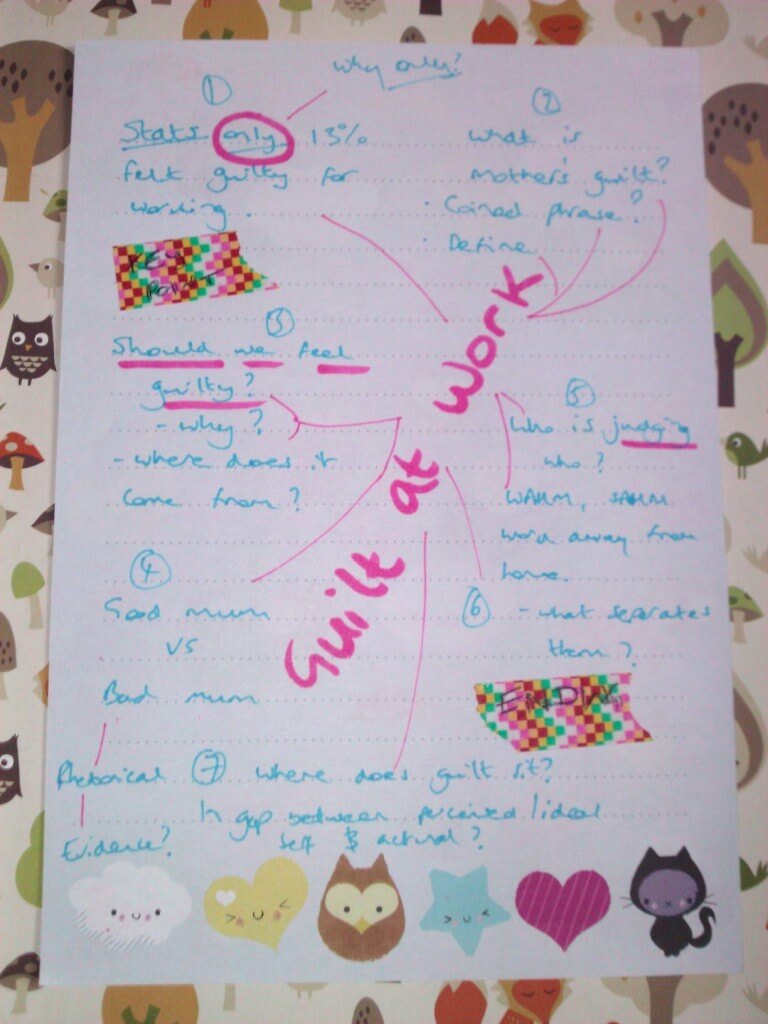As you know in my work and studying a big part of what I do is social research. I find the relationship between research and blogging to be a close one; research helps my blogging and blogging helps my research. I find new topics, organise my thinking and plan using my research skills, and in my work I find blogging forces me to give my personal opinion, to work fast and be reactive to key issues that might increase my influence in the blogosphere.
Research skills relevant to blogging are about:
- Systematising
- Defining a question
- Analysing data (anything can be data, we’re not just talking statistics here)
- Unpacking complex issues
- Observing and
- Arriving at conclusions and understanding their limitations
Five research tips for bloggers
-
Make media alerts work for you
This is something I’ve always done for work but didn’t think about doing for my blog until recently. So my blog focus is a) parenting, but more specifically parental mental health, eco-parenting and child development. Once you can narrow the focus of your interest in this way and understand keywords in these areas you can bring new blog post ideas directly to your inbox by harnessing the power of alerts. I use google alerts but there are lots of tools out there. I have alerts set up for mothering and mental health and working parents. This week these alerts brought a story from the media directly to me, the headline that ‘Working Mother’s no longer Feel Guilty’ so within an hour I had a ‘hot topic’ at my fingertips and could blog in time to join in with the discussions across social media. Alerts help me to be reactive and drive interesting content relevant to my readership. If you’re interested in policy and commenting on institutional approaches to your blog interests you could set up alerts from relevant government departments. I like to get Department of Health alerts in the area of mental health for example. Getting the keywords right can involve a bit of trial and error but once you get it right you have live issues arriving straight to your inbox saving you research time and maximizing the effectiveness of your reading time.
-
Ask questions of data and stories
Ever see a media headline and just run with it? I am really interested in media literacy, asking the right questions of what we’re told rather than accept the journalist’s interpretation. This was highlighted really nicely this week.
My quick view of this graph told me that gun crimes fell following the introduction of the ‘stand your ground’ law. But take a closer look, the Y axis has been flipped so what looked like a sharp fall actually represents a sharp rise.
Don’t forget to ask:
- Who created the message?
- What opinions or biases might they have?
- Why this headline? What is it trying to achieve?
- Might others understand this differently than me?
- Is there anything that is omitted from the article? Could I do some more reading around this to see what’s missing?
-
Find new sources in untapped areas
So you usually read fellow bloggers, mainstream news and online magazines. What are you missing? How about reading new sources to find ideas for new material, what about an online journal in your area of interest? It might be quite academic or heavy but have a message you could write in a way your readers might like. I am really interested in motherhood and there’s a great free academic resource called Mamsie an online journal with a lot to say about my area of interest, an untapped resource that I now love to browse for new ideas.
-
Define your question
This is all about critical thinking, so you want to write an engaging blog piece, how can you unpack your topic for your reader? Do you need to define the issue for them? Maybe you need to explain the history of the issue, what is the main idea you want to bring across? Are you wanting to open up a debate, start a conversation or convince someone of your argument? Do you have enough evidence to back up your argument, or a new idea that hasn’t been talked about yet? If you’re writing a piece you think you’re going to want to promote then defining your research question can be a useful starting point.
-
Draft and restructure
Though scientific in its approach I actually see research as a craft, refining and redefining, drafting and restructuring to help the flow of an argument I see a lot of potential for creativity. Mindmapping is my favoured way of looking at an issue, of drafting and then restructuring my points. This mindmap came out of my prep for my recent post on working parents, it didn’t take long but cut my drafting time as I knew what I was going to say before I started blogging:

What about you, do you apply non-traditional blogging skills to your blogs?














What an incredible resource this is, thank you Ang! I’m going to book mark this and come back to it again as I’m often have bloggers block and don’t use my research skills often enough. I used to look at the NYTimes for interesting articles around parenting (or more pregnancy at the time) but have totally gotten out of the habit!
I absolutely love that gun crime graph – totally misleading! I often think about who sponsored a piece of research when I hear it on the news because more often than not I KNOW we don’t know the whole picture – have you seen the government “swap” scheme – e.g. swap coke for diet coke? I wonder who sponsored that pile of propaganda rubbish! Anyway great post xx
great post xx
Pingback: Mums' List Week 8 - After Easter Mums' Days
I found this so interesting to read, thank you. At the moment my blog is an online diary essentially, but longer term I’d love to get involved with more social PR and marketing so I’m going to read through this thoroughly!
Great post. I have also used Google Alerts for years at work, but haven’t thought about it at home. Of course the challenge is coming up with a phrase that is specific so you get relevant but not too many emails.
The graph is great. It fits nicely with a infographic I read on Google+ recently called the Rough Guide to Spotting Bad Science https://plus.google.com/104465508697061717405/posts/2vMUgkP9te6
What an interesting article, thank you. Definitely something for me to refer back to
A really interesting read, thank you. I use google ad words to identify key words for product descriptions but it only dawned on me last week I could use it for keywords for blogging. This article moves me on much further:)
Wow! This is so interesting. I have to admit to having put such a divide up between my blog and work that I have never taken the time to think about transferring thought processes. This really makes you think- thank you.
I have never thought to use Google alerts before, I can see how they would help not only with blog post, but in keeping up to date generally.
Sometimes I try to dig deeper to find more sources for the information I need… I also like to check and double check my data, even if I publish the original source
If I’m writing something that needs research, I check and recheck a lot! I hadn’t thought of using google alerts, that’s a great tip. Really good post, it’s got me thinking about how I approach topics. Thank you!
What a detailed and useful article. I have to be honest and admit that I don’t analyse my blog in any such way. May be I used to make it better.
Pingback: Goodreads #30 - darktea